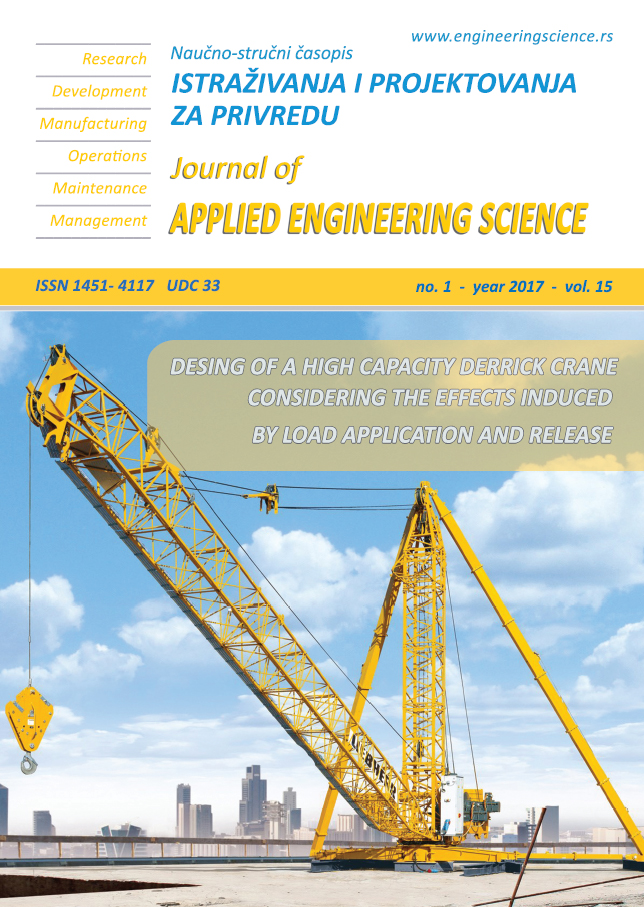SUSTAINABLE APPLICATION OF NATURAL GAS AS ENGINE FUEL IN CITY BUSES – BENEFIT AND RESTRICTIONS
Abstract
Human activities, in particular transport, are partially responsible for the problem associated with the greenhouse effect, and therefore global warming. The transport sector is responsible for approximately 25% of carbon dioxide emissions and consumes almost 50% of global oil production. Natural gas as engine fuel has many advantages: lower costs, lower emissions because of more complete combustion, lower noise and longer engine life. The goal of the European Union is that alternative sources of energy represent 20% of total consumption by 2020. According to the global strategy these problems are solving through a series of initiatives and innovations including the introduction of natural gas buses in city transport. If we take into account the existing situation in city transport, the strategic proposal is to begin by retrofitting diesel buses into dedicated natural gas vehicles. This paper analysed some benefits, which summarized according to the author’s experiences about the introduction of the compressed natural gas buses in urban transport.
References
Hoffman, K., Benz, M., Weirich, M., Herrmann, H. O., (2014).The new Mercedes-Benz medium duty commercial natural gas engine. MTZ worldwide, 75, 11, 4-10.
Milojevic, S. and Pesic, R., (2012). Theoretical and experimental analysis of a CNG cylinder rack connection to a bus roof. Int. J. of Automotive Technology.13, 3, 497-503.
Živanović, Z., Petković, S., Mišanović, S., Holo, A., Šakota, Ž., (2015). Natural Gas Buses in Serbian Public Transport – Some Operational Experiences. FME Transactions, 43, 2, 89-98.
Milojević, S., (2016). Reconstruction of existing city buses on diesel fuel for drive on hydrogen. Applied Engineering Letters, 1, 1, 1623.
Kojic, M., Slavkovic, R., Zivkovic, M., Grujovic, N., (1998). Finite Element Method I - Linear Analysis, (in Serbian), Faculty of Mechanical Engineering, Kragujevac.
https://www.ngva.eu/downloads/news/2012%20Final%20IGU%20UN%20ECE%20NGV%20Report%202012.pdf, retrieved on August 31th, 2016.
http://www.ngvjournal.com/worldwide-ngv-statistics, retrieved on November 1st, 2016.
http://www.unece.org/fileadmin/DAM/trans/main/wp29/wp29regs/updates/R110r3e.pdf, retrieved on August 31th, 2016.
https://www.dieselnet.com/standards/eu/hd.php, retrieved on November 1st, 2016.

